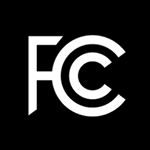The House Subcommittee on Communications, Technology and the Internet began on a collegiate note – Energy and Commerce Ranking Member Henry Waxman (D-CA) thanked subcommittee Chairman Greg Walden (R-OR) for his cooperation in assembling a balanced panel of witnesses to discuss the draft bill “Federal Communications Commission Process Reform Act of 2011.” And true to form, the views of the witnesses, which included former Republican FCC Commissioner Kathleen Abernathy, reflected the various views of subcommittee members.
Here are summaries of the testimony of the six witnesses:
* The Hon. John Sununu, Honorary Co-Chair, Broadband for America: Investors need certainty. We would like to see Committee look at even more change. This is a lot of investment happening in communications even during downturn. Communications Act of 1934 is concerned about monopoly, and that is no longer a concern. Also, look at competition across platforms, or substitution competition. FCC should not duplicate work done by other agencies, particularly in merger review. Plus Sunshine rules actually slow things down. Reconsider FCC’s purpose and role in 21st Century.
* Kathleen Abernathy (pictured), former FCC commissioner and Chief Legal Officer and Executive Vice President, Frontier Communications: Frontier is wireline provider, deals with FCC all the time. Sunshine Act is actually a detriment to the process – fixing this would actually address many other concerns. Wants conditions on FCC condition requirements when reviewing transactions; must be merger-specific, and must not be used to impose unrelated conditions. Such non-specific items should be addressed in a separate proceeding. Believes in timelines and shotclocks.
* Brad Ramsay, National Association of Regulatory Utility Commissioners: Represents state public utility commissions. Reform is needed and there are many good things in the draft. Get rid of Sunshine. Wants to make sure everybody gets a chance to weigh in on FCC proceedings, not just those with money. This is an opportunity to normalize expectations. It may help FCC develop a better record, which will lead to better decisions.
* Mark Cooper, Research Director, Consumer Federation of America: Need reform of ex parte, peer review, public comment, participatory enforcement. Concerned about the draft. Public interest standard is important and draft undermines FCC’s ability to protect the consumer. FCC should NOT be required to do an economic benefit analysis. There is more to communications regulation than simple economic benefit, such as universal service, consumer privacy, diversity, other things. Merger review is challenging and should be handled before they are approved. You want companies to be big enough to be profitable, but you have to check their vertical power so they don’t become too dominant – a difficult goal which requires careful deliberation in advance. Establish norms for transparent and swift enforcement.
* Ronald Levin, William R. Orthwein Distinguished Professor of Law, Washington University School of Law: Specialty is administrative, not communications law, providing different perspective. Agrees ditching Sunshine is a good move. Warning flags on other parts of the bill. Agency proceedings have been getting more complicated over the decades chiefly because of Congressional restrictions. Draft imposes new duties that it should not. FCC should not have to specify market failures being resolved. Other rules are OK some times, but not every time, like two public comment periods – not always necessary. Rewrite cost-benefit analysis portion – similar executive order is limited, this one is too broad and will invite strenuous opposition to the bill.
* Randolph J. May, President, Free State Foundation: William Kennard said FCC would be moving from industry regulator to market facilitator. Michael Powell said FCC was too slow to deal with speed of internet growth. Telling statements, says May, who supports much of the bill. FCC tendency to adopt rules without engaging meaningful analysis, like net neutrality. Therefore, supports FCC economic studies and justification. Also supports elimination of Sunshine provisions. Congress should strike down FCC abuses of merger review process. Would go further to reduce overlap between FCC, DOJ, FTC oversight. Draft does not go far enough in undoing existing regulation.




